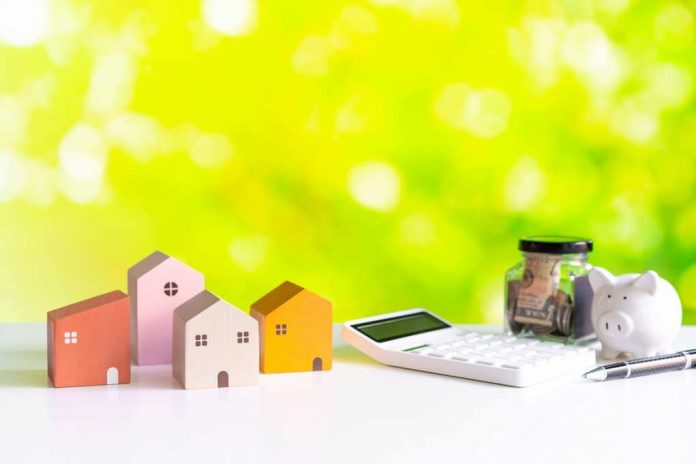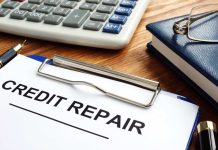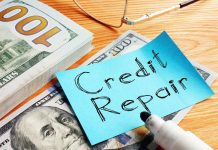
Sometimes home values can decrease. Other times, they can increase (even by a lot!). When you find that your home value has increased, it should pose some questions in your mind, especially when it comes to refinancing. There are a lot of possibilities that come with a home that has increased in value. You want to make sure you reap the most benefits from the decision you make!
What Causes Your Home Value to Increase
Homes will appreciate (a.k.a increase) in value over time. In fact, on average homes appreciate in value roughly 3.5% to 3.8% annually. Unfortunately, a home may not be able to appreciate with just time passing. There are some other factors that impact home values to increase like:
- Real Estate Influences
- Economic Factors
- The Location of the Property
Real Estate Influences
There are plenty of different factors that play a role in home values going up. An important one is real estate influences. Two major real estate influences that can impact these home values are:
- Supply and Demand
- Homes in the Area
Supply and Demand
The concept of supply and demand is easy. There is a supply of goods or services that is “demanded” by the consumer. How many people want the goods or services is the demand and the supply is the amount of goods and services available. Recently we have seen that home prices have increased substantially. In fact, according to realtor.com, home prices increased from the previous year by 8.6% over last year from the week ending August 7, 2021. That is partially due to the high demand and limited supply. Limited supply can also mean more bidders on a property which creates a more competitive market. Families that have the upperhand with more money and/or better credit will be able to win these bidding battles easier.
Homes in the Area
When looking at the value of a home, the homes of the area will play a critical role. If you have the nicest house in a run down area then the value will naturally decrease (compared to if you were living in an area with nice homes as neighbors). That is because the neighborhood has an influence on homebuyers. Homes in the area play a role in the competitive market as well. As there is limited supply, and high demand, homes will sell for a higher value. The homes near that property that sold for an increased amount can also become more expensive. This plays into the cycle!
Economic Factors
These are factors that can influence the demand market and play a role in changing how buyers can afford their home. Economic factors have played such a role in the values of homes that they were a component that contributed to the housing crash of 2008.
The Unemployment Rate
When the job market is strong, there are more buyers that are demanding more goods or services. That is because employment opportunities provide the funds for those buyers to actually purchase what they want. Increased stability is attractive to consumers. When there is a high unemployment rate that means there is less of a consumer market which can lead to too much supply and not enough demand.
The Interest Rate
Interest rate plays an important role in the value of homes. When there are low mortgage rates, many more buyers will be looking to take advantage of the opportunity and buy their home at a locked in low rate. Low rates can lead to thousands in savings (which provides a lot of incentive!). When there is an influx of buyers that creates more demand.
Population Growth
When there is an “attractive area” that is causing buyers to flock there, then that can play a role in values changing. This goes back into supply and demand. If one specific area is showing promise of growth, more people will be interested in moving there which drives up the demand.
The Location of the Property
Property values vary based on location. One location may see home values decreasing while a few towns over may see them increasing. It just depends on where you are, which is why it is important to look at certain location influences that can play an important role.
Check Out the School Districts
It is important to see if your home is in a good school district. Even if you don’t have kids, it is a great selling point for families that do. In fact, according to data from the National Association of Realtors, at least one fourth of home buyers took the quality of the school district into consideration.
Check Out Zoning Regulations
When people are limited in their ability to remodel their home, that can be a turn off. Zoning laws of an area decide how the land can be used from a residential, commercial, or industrial standpoint. If there are more possibilities for the land then there are less reasons for a buyer to say no which can make the property more attractive and increase the value!
See if There are Businesses in the Area
Whether locally owned or commercial, businesses in the area can sway movers. If the home is in a convenient location like near a hospital, grocery store, school, etc. then many buyers will want to live in that area. These properties will likely be the ones to face more bidding because of the fact that they offer such nice benefits!
Is the Property Close to Other Activities?
How close the property is to other activities (other than commercial businesses) is important. Are there hiking trails, lakes, nature preserves, etc. around the property? Depending on the buyer, that can be a great bonus!
Refinancing When Home Value Increases
Homeownership deals with a lot of different aspects. One important aspect is the fact that you may benefit from considering a refinance when the value of your home increases. But first, you should know a little bit more about mortgage refinances.
What is a Mortgage Refinance
A mortgage refinance is when a borrower replaces their existing mortgage with a new one. The new home loan in place can have a variety of terms and conditions. Some benefits of a new loan include the ability to get a reduced interest rate, get cash out of your home, or improve your LTV! There are more than one type of refinance. Three of the most popular options are:
- Rate-and-Term Refinance
- Cash-Out Refinance
- Cash-In Refinance
Rate-and-Term Refinance
Homeowners that want to save money choose this type of refinance. When a borrower chooses a rate-and-term refinance they can expect the interest rate on their mortgage to change as well as the mortgage terms like the length of the loan. This refinance replaces the current loan with a loan for the remaining amount left on the original. A good rule of thumb is to refinance your mortgage when your interest rate reduces by at least 1%. However, you can refinance even if the interest rate reduces by less than 1% (you just need to make sure it is worth it!).
Cash-Out Refinance
When homeowners want to get cash out of their home then they will choose this type of mortgage refinance. This refinance is a bit different than a rate-and-term refinance because of how the new loan is set up. Instead of the new loan being for the remaining balance of the original loan, it is for the entire value of the home. This taps into the equity that homeowners have built up to use.
Cash-In Refinance
This type of refinance is the opposite of a cash-out refinance. Instead of the homeowners getting cash from the equity of their home, they can provide more cash at closing to go towards the remaining balance of the home. This allows homeowners to improve their loan-to-value ratio (LTV). Individuals may try to improve their LTV to get rid of their private mortgage insurance (PMI) or improve their overall financial standing.
When Does Refinancing Your Mortgage Make Sense?
There are plenty of different scenarios where a mortgage refinance can be beneficial. The same theme in each one is the fact that the homeowners can benefit in one way or another. A mortgage refinance that is properly done at the right time can save the borrower thousands over the course of the loan.
Should You Refinance If Your House Value Goes Up?
That question depends on a bunch of factors other than home values increasing. You want to look at the whole picture. Will you be able to save money? Can you actually reap the benefits after the closing costs? Do you need to get money from your home? Your motivation for the refinance and the break even point to reap the benefits are going to play a part in your decision more than just the value of the home.
Consider Selling Your Home
Not only could refinancing your mortgage be a beneficial option when it comes to the value of your home increasing, but it may also be beneficial to consider selling your home. When prices are high, and your home value has shot up, you may be able to make a significant profit from selling your home. This can be especially beneficial to seniors that may benefit from downsizing their current home. You may be able to benefit from a high value home market and a low interest rate at the same time! However, this may not be a great option because your new home could cost more than the profit you make. There is some risk involved if you choose to sell your home. Regardless of your decision, you should speak to a professional to get educated insight on what would be best for your financial situation.
Home Improvements to Increase the Value of Your Home
There are some ways that you can improve your home value. However, before worrying about improving the value of your home, you should see where you are starting off. The first thing you should do is see what your current home value is. You can do this by either using a free tool online (there are many to choose from!) to get an estimate or by paying for an appraisal. Now that you know your starting spot, there are some home improvements you can consider to work on improving the value of your home.
Make Your Home Bigger
A quick way that you may be able to increase the value of your home is by upping the square footage or creating spaces within the home that are usable. You may want to consider actually adding onto your home (pending the zoning regulations which allow you to make those changes.) If you cannot create additions to your home then you may want to work on transforming spaces like finishing a basement or an attic.
Create More Curb Appeal
While many people know not to judge a book by it’s cover, the exterior of the home is what is first seen by the potential buyer. It is important that the buyer is attracted to the home, and that the home appeals to the eye! Improving the siding, roofing, driveway, gardening, and windows are just some ways you can make the home more attractive.
Make Improvements in Your Kitchen
The kitchen is one of the most important spaces in the home. As the food hub of the house, many people go into the kitchen. Whether you are feeding a family, or just cooking for yourself, it is important that your kitchen looks nice and provides functionality. Some kitchen improvements can be updating the cabinetry, replacing the counter tops, creating sink additions, and more.
Look Into Improving the Energy Efficiency of the Home
A popular trend in housing is looking for alternative ways to handle energy costs. One way that homeowners may be able to save money is by going solar. This can be an attractive feature to prospective buyers because it may be able to provide homeowners with the opportunity to save on their bills every month. Other ways to improve energy efficiency include updating door and window seals, getting a smart thermostat, etc. There may also be tax benefits that you can reap when going energy efficient as well!
Overall
There are plenty of factors that influence the value of the home. Factors from real estate changes (like supply and demand), economic influences (like the interest rate and job market), and the location of the property can lead to an increased value of the home. If you want to increase the value of your home, some ways that you can achieve this is by making your home bigger, creating more curb appeal, improving your kitchen, and improving the energy efficiency of the home.
When you see that the value of your home increased then you have a couple options to consider. You can consider refinancing your mortgage or selling your home. If you choose to refinance your home, make sure to keep the multiple types of refinances in mind when making a decision. Regardless of the type of refinance you choose, you want to make sure you are able to reach your break even point and actually reap the savings benefits. If you choose to sell your home, you may be able to make a profit but there are some risks involved. Whatever decision you make, it can be helpful to speak to a professional so you can make sure that you make a decision that’s best for your current financial situation.
Commonly Asked Questions
There are plenty of questions to consider when dealing with the value of your home increasing.
What are Some Other Ways to Tap Into Home Equity?
Sometimes, when the value of a home increases, individuals may look at a cash-out refinance to tap into the home equity. However, there are some other ways that you can tap into your home equity if a mortgage refinance doesn’t make sense for your current financial situation. Some other ways that people can get cash out of their home is with a home equity line of credit (HELOC) or even a home equity loan.
Ways to Handle the Costs of Home Improvements?
Home improvements can lead to an increase in the value of your home, but some can be a little costly. That is why you should consider some financing options that can help go towards the costs of these home projects. Some ways are with:
- Home Remodel or Home Repair Loans
- Cash-Out Refinance Funds
Home Remodel or Home Repair Loans
This is a type of unsecured personal loan that is offered by financial institutions to go towards the costs of home repairs or remodels. Individuals like these loans due to the fact that the home is not used as collateral like in a secured loan. Your eligibility and interest rate are primarily based on your credit standing.
Cash-Out Refinance Funds
When borrowers choose a cash-out refinance, the funds received at closing can go towards home improvements. Depending on the amount of home equity that you have available to tap into, you could have more than enough to cover the costs and then some! If your home value increases, you may be able to get more home equity.
How Can an Increased Value of Your Home Affect When You Refinance Your Mortgage?
You may be able to get better interest rates if the value of your home has increased. You may also be able to get more cash out during refinancing! Either way, if the value of your home increases, that may be a great time to start thinking about ways that you can benefit.
What Happens to Your Mortgage When Your Home Value Increases?
There should be no changes to your existing mortgage if the value of your home increases. However, to confirm that to be the case you can contact your lender to see if there is any impact.
Article References
https://homeguides.sfgate.com/much-homes-increase-value-10-years-100948.html
https://www.realtor.com/research/tag/housing-inventory/
https://www.investopedia.com/articles/economics/09/subprime-market-2008.asp




























